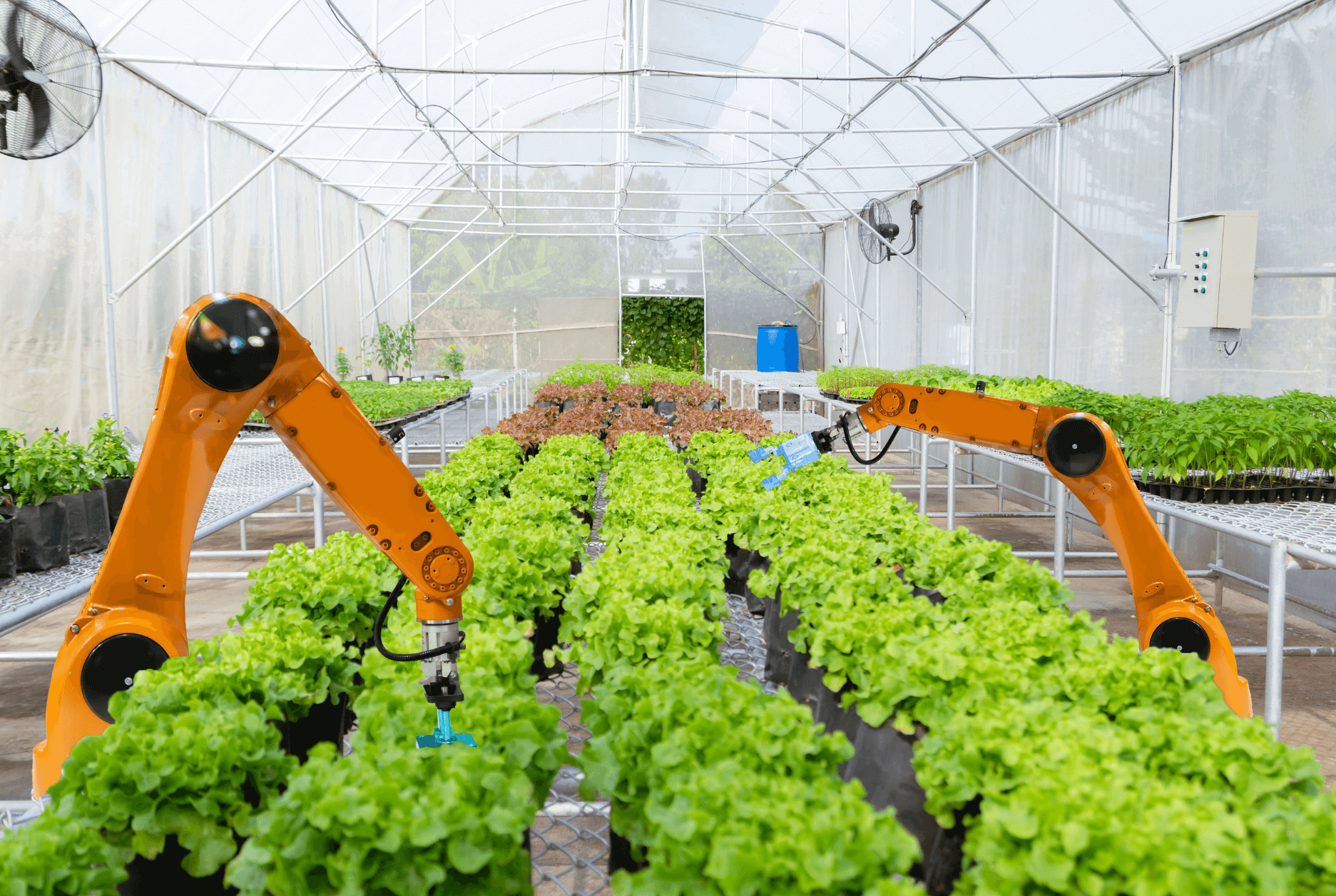Agricultural Tech: Understanding a Growing Target-Rich Investment


Agricultural Technology, otherwise known as Ag Tech, has exploded over the past decade, becoming a key destination for impact investors. From addressing climate change to increasing environmental sustainability and improving plant-based proteins, Ag Tech is changing the world.
To help understand Ag Tech investment opportunities, TIGER 21 hosted an expert speaker session featuring GreenLight Biosciences CEO Dr. Andrey J. Zarur, Smartwyre CEO & Founder John Brubaker, Granular Former CEO (acquired by Corteva) and Former Head of Corteva’s Digital Ag Division Sid Gorham, and Ukko CEO Anat Binur.
Framing the market opportunity, it’s important to understand agriculture’s footprint on the planet and its staggering numbers. Around the world, agriculture comprises:

Agriculture also represents 10% of global GDP and employs close to 40% of the global workforce, while poor diet is the leading cause of death worldwide.
What is Agricultural Technology?
Ag Tech is the application of hardware and software in farming. It has four broad sub-sectors:

- Hardware: from robotics to machinery, automations, and drones used for imagery and spraying
- Software: digitization of the supply chain
- Biotech: new cleaner, greener approaches to pesticides and herbicides
- Food and Nutrition: more plant-based proteins and functional foods; addressing allergies and diseases
Why Invest in Ag Tech?
The industry is enormous, and agriculture’s footprint may seem overwhelming but investing in Ag Tech can make a significant impact on improving Earth’s resources while addressing environmental concerns. Session Moderator and TIGER 21 Member Eric O’Brien, Managing Director of Fall Line Capital, said, “If we want to think about areas where we can have an impact on carbon sequestration in water, on quality food for the planet, if we think about the growth of population, and look at the ability to produce enough food to feed the planet sustainably, we have to look at agriculture. We have to look at technologies that help us produce with much, much higher resource use efficiency, and to do that in a way that is kinder to the environment.”
What’s Driving Ag Tech Investment Opportunities Now?
A number of factors are shaping Agricultural Technology investment opportunities, O’Brien said. Chief among them is removing toxic crop protection products, improving technologies in food production, and consumer trends around a growing preference in plant-based protein.
Another sizeable influence is new startups entering the Ag Tech space, breathing innovation into the industry.
“You have major mergers of Monsanto being acquired by Bayer of ChemChina acquiring Syngenta, Dow and DuPont coming together to form Corteva. You’ve seen so much consolidation over the last five to 10 years that has driven a lack of innovation, quite frankly, because these companies have been so focused on the integrations of their own worlds and fiefdoms within big, big organizations,” he said. “The amount of investment and prioritization they put on innovation, I think, has been lower in the last five to 10 years than we’ve seen in a long, long time. That has given an opportunity to startups to create new technologies and to explore new markets without the competition from incumbents.”
Finally, Ag Tech is a global game, Binur said.
“I think this is a global opportunity because the ability to bring together different technologies, solutions, problems that people face are sometimes very common across the globe,” he said. “I think you can find companies all over that can actually be collaborating on global solutions.”
Three global solutions driven by Ag Tech are: using biotech to create cleaner pesticides, resolving food allergies with therapeutics, and digitizing the supply chain. The panel discussed some common questions and themes within each of these areas.
Biotech and RNA Pesticides
The survival of humans on this planet is directly linked to the survival of honeybees. If they go, we go.
Dr. Andrey J. Zarur, CEO GreenLight Biosciences
Ribonucleic acid (RNA) is one of three major biological macromolecules essential to all lifeforms, along with DNA and protein. “RNA is, if you will, the machine language of life. That’s the code in which we all run,” Zarur said. “RNA can either tell your body how to make a protein, or it can actually suppress the production of a given protein.” In agriculture, RNA is used in pesticides to help control insect and fungi infestations.
GreenLight Biosciences’ RNA insecticide is specifically engineered to protect honeybees, which are now under threat as a result of climate change, intensive agriculture and traditional pesticide use. “The survival of humans on this planet is directly linked to the survival of honeybees,” Zarur said. “If they go, we go.”
GreenLight’s RNA insecticide targets a parasitic mite that feeds on honeybees, suppressing a specific protein within the mite without harming the bee. “We now have to proactively help bees be healthier and be more abundant again,” Zarur said.
Food and Nutrition: Allergies
It’s actually been incredible to discover how little is really understood in this field when the opportunity is massive.
Anat Binur, CEO Ukko
While food allergies have burgeoned in recent years, Binur explained there are a number of theories about the recent uptick but little scientific research in identifying the causes that affect millions of people worldwide.
“There isn’t just one hypothesis that’s really scientifically backed,” she said. “It’s actually been incredible to discover how little is really understood in this field when the opportunity is massive.
”Binur said a historic “under investment” in allergy research is slowly shifting, thanks in large part to Nestle’s 2020 acquisition of Aimmune Therapeutics for $2.6 billion, which created a lot of buzz in the industry. Binur also sees a positive shift away from a previously siloed research approach among academia, startups and entrepreneurs. More collaboration in the space is starting to drive better results, she said.
Cybersecurity, Data Privacy and the Digitization of the Supply Chain
How do you harness the power of big data while protecting the preferences and concerns of the sources of that data on the farm?
Sid Gorham, Former CEO Granular
There is considerable concern with the sensitivity of personally identifiable information at the farm level, Gorham said. “As a culture, farmers are extremely private people,” he explained. “So, one of the challenges the industry has is, ‘How do you harness the power of big data while protecting the preferences and concerns of the sources of that data on the farm?’”
Brubaker agreed and added that the same cultural sentiment is shared by suppliers. “They’re very comparable communities,” he said. “The retailers, distributors, and manufacturers of farm inputs are conservative in that sense, and digitally skeptical, I think.”
Because agriculture is a “very commercially sensitive space around pricing and margins” farmers and suppliers are equally concerned with data privacy, Brubaker said. “We get lots of questions from current and prospective customers of ‘Where’s my data?’ ‘Who can see it?’ ‘How secure is it?’ Given that part of our value proposition is to enable sharing of information, to give cross-supply chain efficiency we’ve had to think a lot about giving transparency to our customers about who they’re sharing their data with, what policies they have in place, how they can pull those policies back.”
From digitizing the supply chain to scaling agriculture and producing cleaner pesticides, a number of venture opportunities exist in Ag Tech today, but that’s quickly changing, O’Brien said. “We are seeing a maturation across the field,” he said. “There are a number of companies that are in public processes this year, and I expect that will continue next year.”
The TIGER 21 community offers a wealth of knowledge and expertise, from wealth management insights to health and wellness. You may be interested in other TIGER 21 Insights:
About TIGER 21
TIGER 21 is an exclusive global community of ultra-high-net-worth entrepreneurs, investors, and executives.
Explore the TIGER 21 Member ExperienceMember Insight Reports













